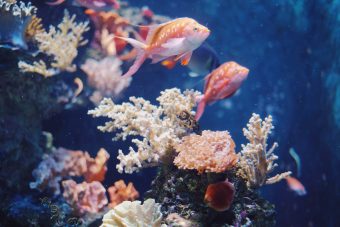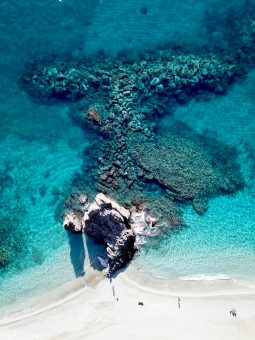Cuba has introduced sweeping reforms of its fishing laws in a move seen as smoothing the way for possible collaboration with the US on protecting their shared ocean, despite Donald Trump’s policy of reversing a thaw in relations.

The move is the first time the text of an environmental law in Cuba specifies the need for scientific research, which experts say will mean greater reliance on state-of-the-art US technology.
“If we don’t look for collaboration we can’t have the full picture,” said Jorge Angulo Valdes, a Cuban marine biologist at the University of Florida. Ocean science must continue to transcend political pressures, he said. “Trump is doing everything he can to close the doors on collaboration. Cuba is doing everything to make it easier to keep those doors open.”
Cooperation is as vital to US interests as it is to Cuba, Angulo-Valdes said. The two countries are separated by just 140km (90 miles) of water, and Cuban waters provide spawning grounds for species of snapper, grouper and other commercially important reef fish in the US. Maintaining healthy numbers of bonefish, a lucrative game fish in south Florida, for example, depends on protecting the species in Cuban waters, where the bonefish spawn, said Angulo Valdes.

The reforms are Cuba’s first major overhaul of fishing laws for more than 20 years and a major step for preservation of some of the world’s most important marine ecosystems, said Dan Whittle, Caribbean director of the US-based Environment Defence Fund (EDF), which has worked with Cuba on conservation and sustainable fishing and brokered several of its key environmental agreements with the US.
“These laws also level the playing field because now the US can say that their neighbours are using the most up-to-date science,” said Whittle.
Despite having some of the world’s best preserved marine ecosystems, Cuba has seen declining fish populations, including of key commercial stocks like grouper and snapper. Angulo Valdes said: “Marine resources weren’t doing well, nearly 80% were in critical condition. The old law didn’t cover the private sector and wasn’t working.”
The new laws aim to curb illegal fishing, recover fish populations and protect small-scale fisheries, with increasing use of data-limited methods that allows fisheries to assess which species are most vulnerable, even when scientific data on specific stocks is scarce. The laws also separate sport and recreational fishing and brings fisheries under the management of the food industry ministry (Minal).
A key feature is a new licensing framework for the growing private commercial fishing sector in Cuba. Established in 2009 to increase seafood production and create jobs, this sector now has 18,000 private commercial fishers operating out of more than 160 fishing ports to provide seafood to state markets.
Read more: Guardian



